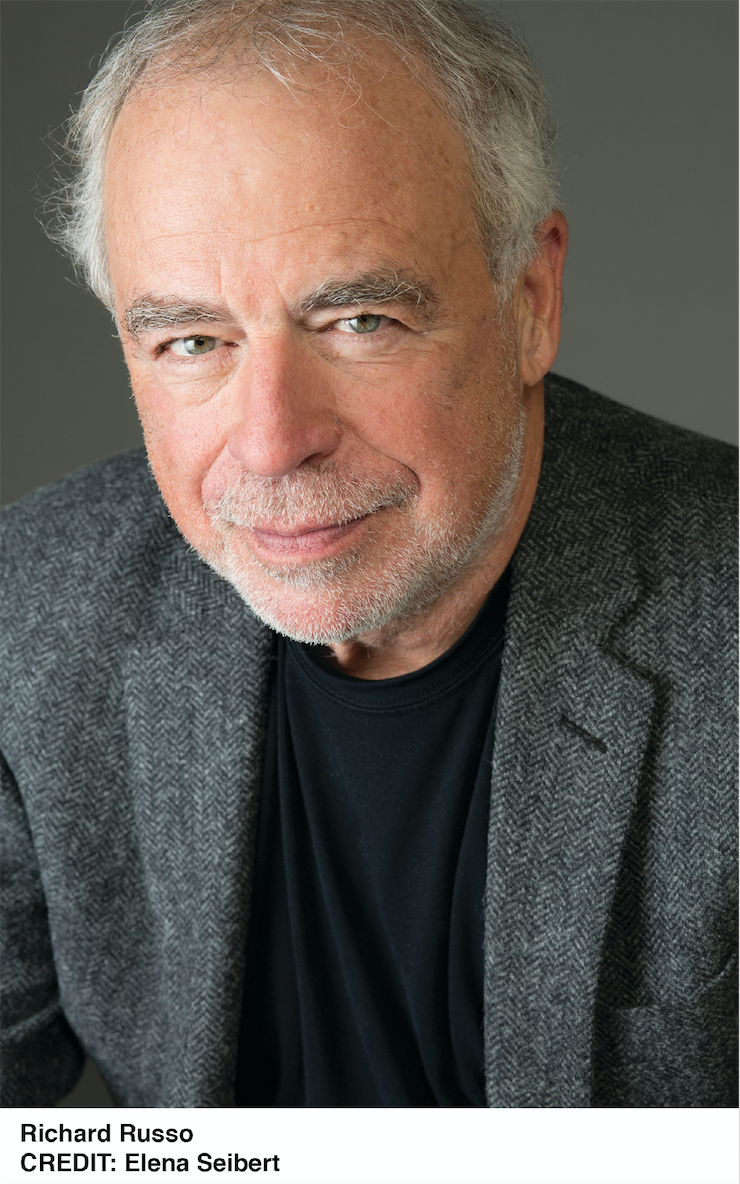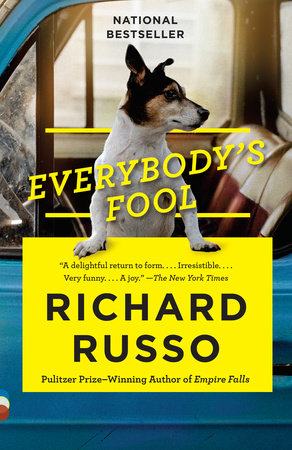Interview: Richard Russo
 Midwestern Gothic staffer Meghan Chou talked with author Richard Russo about Everybody’s Fool, remembering people through characters, broken ankles, and more.
Midwestern Gothic staffer Meghan Chou talked with author Richard Russo about Everybody’s Fool, remembering people through characters, broken ankles, and more.
**
Meghan Chou: What’s your connection to the Midwest?
Richard Russo: I should probably confess that with the exception of three years when I lived in southern Illinois—which many people seemed to think was the deep South—I don’t have much connection to the Midwest beyond literature (Sherwood Anderson, F. Scott Fitzgerald, or rather his narrator in Gatsby). People sometimes ask if I feel about the Midwest the way the way Jack Griffin’s snobbish parents do in That Old Cape Magic (“the mid-fucking-west,” they call it). No, of course not, but I’m more of a tourist there than an expert
MC: Nobody’s Fool, a now classic text published in 1993, has been adapted into a feature film and received great critical acclaim. Why did you decide, now, to write a sequel?
RR: The main character of Nobody’s Fool, Donald Sullivan, was based on my own father. Because my parents separated when I was young, I didn’t see much of him as a boy. I really got to know him only as an adult. Because he became ill and died relatively young, I never really got my fill of the man. Writing Nobody’s Fool brought him back to life, allowed the two us to continue our father/son conversation. Twenty-three years later, I think I must’ve been lonesome for him, or Everybody’s Fool wouldn’t have been written. I was also lonesome for Paul Newman, who brought Sully so vividly to life in the movie and who had died in between the two books.
MC: In what ways did Nobody’s Fool confine or give you freedom when writing Everybody’s Fool?
RR: I never felt confined in writing the sequel, though I had to reread the book and re-familiarize myself with its details. Obviously you want to preserve the continuity of the two stories as much as possible. What gave me the freedom I needed was shifting the emphasis from Sully to Chief Raymer, who was a bit player in the first novel. Many of the other characters—Ruth, Roy Purdy—had depths I never suspected when I wrote the first novel.

MC: How does the new protagonist, Raymer, compare and contrast to the protagonist in Nobody’s Fool, Sully, and what do these differences and similarities in character reveal about Sully?
RR: In most respects Sully and Raymer are polar opposites. Though he’s made his share of mistakes, Sully made a pact with himself long ago not to indulge in regret. By contrast, Raymer regrets just about everything he’s ever said and done. He is, in that sense, the fool of the title. But Sully’s refusal to regret, to just keep moving, is dangerous too. I suspect most people try to find a middle ground between admitting regret and not being overwhelmed by past mistakes.
MC: Reviewers note that Everybody’s Fool differs most from its predecessor through the way it acknowledges evil, especially through the villainous Roy Purdy. Roy Purdy, connected to Sully through complicated family ties, is released from prison. He was indicted, in Nobody’s Fool, for physically abusing his ex-wife, Janey, and for pursuing her with a gun, which he used to shoot up a house. How did you establish a villain as something more than just a caricature?
RR: Good villains must be understood. The why of their behavior is always important, often more important than the what. Roy beats on women because it satisfies some deep urge. As appalled as we are by his behavior, we don’t really understand it until near the end of the book when he remembers his father taking him to that diner. It’s there that Roy, just a kid, learns that woman—in the form of the waitress who takes his side—is the source of all evil and humiliation for males. He learns his lesson well.
MC: The dynamic between Sully and Rub, his sidekick, provides a great source of humor in the story to combat the hardships the characters face. What power and purpose did you envision humor to play in setting the tone of Everybody’s Fool and in developing relationships between characters?
RR: I grew up among people who used humor combat the realities of hard lives. Air, water, laughter—these things were free and necessary. Power? As Twain put it in “The Mysterious Stranger,” “Against the assault of laughter, nothing can stand.” We laugh about the things that worry us most—sex, death, our own foolishness in the matter of living.
MC: What’s the most important advice you gave your students while you taught at Southern Illinois University Carbondale?
RR: Many of my students at Carbondale were a lot like me—first generation college students from working class backgrounds and off the beaten track home towns. Which means they had stories to tell but were probably reluctant to tell them. Coaxing those stories out, convincing such students that their stories were as valid as stories about New York or Chicago or L.A. was Job One.
MC: How do you overcome rejections or failures during the writing process?
RR: I’m not sure you ever really do overcome rejection or failure. Sometimes it’s possible to accept them and learn from them. Mostly they’re beside the point. You failed? So what? It happens. In fact, it’s supposed to happen. They didn’t like your story? Okay, write another. Maybe they’ll like that one. You internalize what you know to be true across the entire spectrum of the arts; the more you practice, the better you get. (“I can’t go on; I’ll go on.”)
MC: What’s next for you?
RR: What’s next? Well a couple months ago I managed to break my ankle. At the time I’d been reluctant to begin a new novel because I had a lot of travel coming up that would interrupt it. But then there I was, sitting in front of my computer, trapped in my office, my foot in a cast. Why not write the first chapter? By the time the cast came off two months later, I had 150 pages, a very good beginning. I’m thinking about breaking the other ankle.
**
In addition to The Whore’s Child, Richard Russo is the author of nine novels, most recently the best-selling Everybody’s Fool and That Old Cape Magic, and the memoir Elsewhere. In 2002 he received the Pulitzer Prize for Empire Falls. He lives in Portland, Maine.






